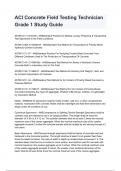Search for Objectivity
- Adopted a modernist approach to social theory
- Believed that the ultimate aim of social theory was to search for historical truths and to gather
historical facts about society rather than to bring about social and political action (Marx)
- Believed that concepts in the social sciences should be neutral and not based on value
judgements (versus Marx who used morally loaded terms such as exploitation and alienated),
need to examine social reality with no regard for socio-political implications
- Rejected Marx’s materialist approach that all of social life could be explained by recourse to
economic laws, other non-economic factors need to be considered i.e. political, legal and
religious spheres, no one dominant sphere
- Protestant Ethic as an example, sought religious reasons for the rise of capitalism (under
Marx’s theory of base/superstructure, capitalism would have been the main driving force for
religious motivations)
- Advocated that behind every possible reality, there lies a source of motivations that are multi-
faceted
- Criticises sociological commitment to methods of natural science (Durkheim)
- Task of social science is to penetrate the subjective understandings of the individual, to get at
the motives for their actions, bound to be different from the methods undertaken by the natural
sciences
- No branch of knowledge absolutely objective or subjective, combination of objectivity and
subjectivity to explain the essence of reality
- Sociology must use subjective meanings to understand reality objectivity, following the spirit of
science rather than the method
Social Action / Methodological Individualism
- Fundamental unit of sociological investigation must always be the individual, focuses upon the
individual instead of groups or collectivities (methodological individualism)
- “Collectivities must be treated as solely the resultants and modes of organisation of the
particular acts of individual persons” (Economy and Society)
- Collectivities cannot think, feel and perceive, only people can
- People, unlike material things, have motives for their actions, their behaviour is guided by
subjective meanings
- Social actors have their own ideas and explanations as to why they behave in the way that they
do, these ideas and explanations are an indispensable part of any comprehensive account of
their conduct
- These ideas enter into actors’ conduct as motivational forces
- Assumes humans vary their actions according to social contexts and how it will affect other
people
- “An action is ‘social’, if the acting individual takes into account of the behaviour of others and
is thereby oriented in its course” (Economy and Society)
- “subjectively meaningful” (Nature of Social Action)
- Actors decide to take certain courses of action in preference to others and their decisions are
powerfully affected by the perception of opportunities and constraints
- Concept of social action developed to observe how individual relate to cause and effect in the
social realm
- Championed the cause of normative explanations in opposition to the claims of historical
materialism
- Rational Actions —> taken as it leads to a valued goal but with no thought given to its
consequences (ends justifying the means)
- Instrumental Actions —> planned actions taken after evaluating the goal in relation to other
goals and after consideration of various means


